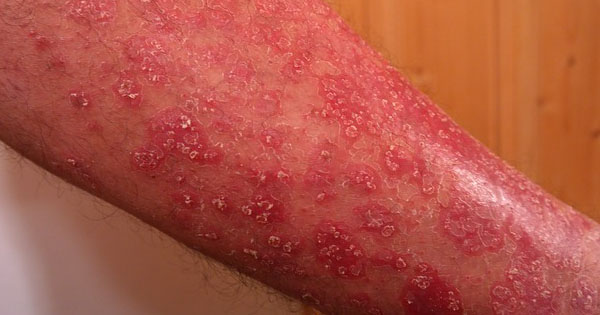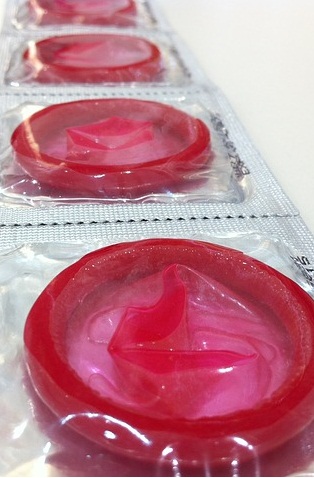Syphilis and Men: 3 Ways to Prevent STDs from Ruining Your Life

There have been growing concerns due to the rising number of sexually transmitted disease (STD) cases all over the world, for men and women alike. Sex is a universal language, and therefore spreading infections can be rapid and uncontrollable in the coming years. That poses a huge threat to future generations. The World Health Organization (WHO) has conducted random tests, research and promoted safe sex education to pacify the growing number of STD cases.
 But their efforts may not be enough. Last year, the number of STD cases rose up by 10 percent in the United States alone.
But their efforts may not be enough. Last year, the number of STD cases rose up by 10 percent in the United States alone.
A large percentage of these cases recorded were from the LGBT community. There were also a good number of pregnant women infected, as well.
STDs can affect your overall wellbeing in a huge way. Your physical health can deteriorate rapidly or gradually, depending on your case. Without fast treatment, STDs can affect your other organs and the functions of your body systems.
Of course, your psychological health will follow suit, with the knowledge of having what could possibly be a life-long disease. For pregnant women, STDs can place your unborn baby’s life at risk.
Causes Of STDs
 As the name suggests, STDs are spread through sex. But sex, in general, is not a dangerous activity. So, what causes the spread of STDs?
As the name suggests, STDs are spread through sex. But sex, in general, is not a dangerous activity. So, what causes the spread of STDs?
- Multiple Sexual Partners Or Changing Partners Regularly. Changing partners or having sex with a number of people at a time can pose a threat of you getting an infection. Without keeping track of the people that you sleep with, you’ll never know who amongst them is safe and infection-free.
- Unsafe Sex. Not using condoms or other types of protection, not only against pregnancy, but from the spread of infections. The use of condom can protect you by preventing genital skin to skin contact, which is usually the starting point of STDs.
Syphilis, Chlamydia And Gonorrhea
STDs can be in different forms, some of them undetectable even if you have had them for a long time, while others show symptoms in early stages.
Infections that show early symptoms are good in way because you are given the chance to treat them immediately. Here are three types of STD that are the most common:
- Syphilis is said to be the most common, with the highest number of STD cases. However, if detected early, Syphilis is fast and easy to treat.
- Chlamydia is another common type of STD caused by the bacterium called Chlamydia trachomatis. If untreated, Chlamydia can lead to reproductive health issues such as ectopic pregnancy and infertility.
- Gonorrhea is caused by the bacterium called Neisseria gonorrhoeae.
The common symptom is a burning sensation while urinating.
Gonorrhea causes infections in the skin around the rectum, genitals and throat.
If left untreated, it can lead to serious conditions of body systems.
 Having an STD does not mean that you are dirty or broken forever. You may only be a victim of circumstance and situation. However, it does mean that you need immediate treatment to prevent the worsening of the infection and to protect yourself. Early detection is the key to immediate treatment and cure.
Having an STD does not mean that you are dirty or broken forever. You may only be a victim of circumstance and situation. However, it does mean that you need immediate treatment to prevent the worsening of the infection and to protect yourself. Early detection is the key to immediate treatment and cure.
If you are aware that you have an STD, it is your social duty to protect others besides yourself, as well. Avoid sexual contact to prevent the disease from spreading.
If you are showing any symptoms or you suspect that you have an infection, don’t be shy and don’t hesitate to consult your doctor, so that you can start treatment right away.
More About Syphilis
Syphilis, being the leading type of STD presently, has gained a large amount of attention in terms of prevention and treatment. Syphilis is caused by a bacterium called Treponema pallidum.Early symptoms are called chancres– these are small, circular and painless sores that will grow on the external genitals and anus. It may also grow around and inside the rectum and vagina, and on the mouth or lips.
 Syphilis is transmitted through skin to skin contact with chancres during sex. It can also be transmitted from mother to child at childbirth. There are mainly three stages of syphilis.
Syphilis is transmitted through skin to skin contact with chancres during sex. It can also be transmitted from mother to child at childbirth. There are mainly three stages of syphilis.
- Stage One. Symptoms occur at 10 days to three months after you have been infected. It is usually detected with one sore on the area that has contacted the infecting sore.
It lasts for six weeks and can’t be relieved on its own. This should be accompanied by the necessary treatment. Without treatment, the infection will progress to the next stage. - Stage Two. Syphilis, on its secondary stage, would mean that treatment either did not happen or was not pursued vigorously enough, and the infection has started to spread.
This is further confirmed by the appearance of rashes on one or several parts of the body.
Other symptoms will include fever, sore throat, swollen lymph glands, headaches, weight loss, fatigue and body pains. Because these symptoms are common to other ailments, the infection goes undetected and left untreated, which will then lead to the most potent stage. - Stage Three. The highest stage of syphilis can last up to 10 to 20 years. You may not show any symptoms during this time, but the infection will gradually cause damage to your body organs and systems, such as your nerves, eyes, blood vessels, brain, liver and bones. Symptoms may include, but are not limited to paralysis, numbness, dementia and gradual to permanent blindness.
Prevention is Better Than A Cure
Like everywhere else and as a general rule in health, prevention is always better than a cure. To elaborate that, early detection of infection is good.You are given the chance to be treated right away, so that the infection will not spread and will not infect your partner as well. But – it would be best if you do not get an STD at all.
 It would be less hassle if you are 100 percent clean and safe all the time. Treatment may be costly and stressful.
It would be less hassle if you are 100 percent clean and safe all the time. Treatment may be costly and stressful.
That said, here are simple and common things to remember, so that you can prevent or help prevent the spread of STDs:
1. Stick With One Partner
You may not be this type of person, but you have to admit that you at least know one friend or someone that loves to change partners regularly, like how they change their clothes, or those who have multiple partners at a time, or loves participating in orgies.
There is no judgment here on your or your friend’s choices when it comes to sex, but you have to consider that having multiple partners increases the chances of making contact with someone who is infected, therefore infecting you, or your friend, and you then passing the infection on to others. The vicious cycle goes on and on.
2. Avoid The Use Of Recreational Drugs And Excessive Alcohol
 This is hitting two birds with one stone. One, using illegal drugs or drinking excessive alcohol will cloud your judgment in terms of sex. You have to admit that sex sounds really great when you are boozed up.
This is hitting two birds with one stone. One, using illegal drugs or drinking excessive alcohol will cloud your judgment in terms of sex. You have to admit that sex sounds really great when you are boozed up.
You will practically bang anyone near you, who is more often than not, as boozed up as you are. That means it could be anyone, and that anyone could be infected, therefore infecting you, too.
Two, the use of drugs and alcohol regularly can lower your immune system, which is responsible for battling infections and getting them out of your body. So, if you are infected, or are carrying an infection without knowing about it yet, your weakened immune system will definitely help the progress of the infection to multiply in your body.
3. Practice Safe Sex
 Sex education does not only apply to preventing unwanted pregnancy.
Sex education does not only apply to preventing unwanted pregnancy.
Safe sex has been repeatedly shown and encouraged in commercials, schools, companies and everywhere else for everyone to be aware of it, and for everyone to know that this is something that should not be taken lightly.
Teenagers as young as 12 years old are starting to have sexual encounters already, and that is a reality that we can’t change easily. The best approach is to educate everyone with how to be safe when engaging in sexual activity.
Practicing safe sex is the best way to go about preventing the spread of STDs. Be sure to use condoms and other types of protection to protect you and your partner from any infections and STDs.
A sexually transmitted disease can affect your personal life in magnitudes. It will not only affect your physical health, but will also affect your psychological, emotional and financial standings, which is why prevention is way better than a cure.
In today’s generation, the line “better safe than sorry,” is completely applicable. Sex is something that we can’t just stop doing. It is a way of life, a common love language for everyone. So, the best and easiest way to avoid any life-long regrets is to practice safe sex for the prevention of diseases that could be with you for a lifetime.
